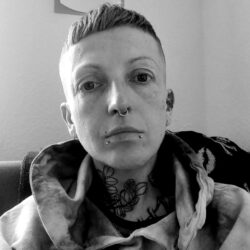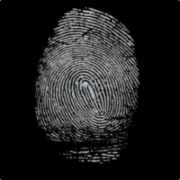Combining physical, psychosocial and digital elements of protection and care with security planning and management on both individual and collective level
Activists, human rights defenders, and political organisers across Central and Eastern Europe work and operate in a hostile climate. Conservatism, misogyny, economic scarcity and rise of the far right are only a few of the threats they face. This impacts our own and collective wellbeing, as well as our effectiveness, and, especially in the long run, it can deter and hinder efforts towards greater social, ecological and economic justice.
Holistic security training aims to:
What will happen?
This training is part of the Ulex Central and Eastern Europe Programme pilot year. It is designed and delivered by a training team embedded in CEE social movements.
Creating Space: Security and Radical Well-being
This dimension will support participants in reclaiming security as a subjective and personal or community concept. We will explore external risks and threats for activists in their context (e.g. with regards to law, violence, technology, and impact through gender, race, ethnicity, sexual orientation, class, etc.). Looking at psychological responses to threats, we will build an understanding of the impact of stress and trauma on well-being, care and security. We will explore self-care, collective care, well-being as political tools in political struggles, and the importance of mobilising inner resources and solidarity while improving security in groups and organisations.
Explore, Strategize and Planning: Analysis and Planning for Security
This aspect of the training will enable participants to analyse and unpack threats, which are often multilayered and thus tend to overwhelm. We will analyse and prioritize risks, including situational monitoring, and explore ways to strategise for readiness, prevention, responses and resumption. Actor mapping help to identify allies and adversaries to consider for networking, advocacy and political action, and a reflection of different security strategies opens space for strategic planning. We will dive into realistic scenarios, prevention and emergency planning, and focus on the needs and topics of the group.
Act: Security and care in Action
This can range from action training or crisis response simulation to investing in securing public and internal communication to actively build care and awareness structures within the movements, activist groups or organizations themselves. In our training, we offer space to acquire basic digital care skills as well as the option for peer coaching on specific scenarios or how to deal with conflicts within activist groups.
How to apply?
Everyone active in social movements in the region of Central and Eastern Europe is welcome.
Apply here by 8th of April 2024.
The training´s working language is in English, but please let us know in the form if this is something you could use support with. The training team speaks other languages too and together we can think about solutions.
Some travel bursaries will be available.
There is no charge for the training, so economic difficulties should not prevent you from attending!
This training will take place in Kunbábony, Hungary
This venue is accessible for people with limited mobility.
In the solidarity economy:
(See details of our approach to radical economics here)
Contact us
to apply

Location:
Lives in Berlin, where used to work for European Youth for Action (EYFA) supporting groups from the office, today is still part of its network. Right now actively supports right to abortion. Mo was a member of the polish trainer’s collective SPINA, where skilled themselves in various topics and delivered workshops, facilitated groups processes and created materials. Published a book about genderbending.

Location:
Lives in Budapest, community organizer, and director of Civil College Foundation. Organizers of the Clear Vote coalition and campaign, to prepare local communities and a network of activists to understand and oppose voter fraud and illegal influence on constituencies. Has experience in neighbourhood organizing, green politics, union organizing, building coalitions and networks, and interest in adapting Sociocracy .

Location:
Baška (they/them) Facilitation, education, direct action and network building form the core of my life and work. Rooted in environmental science and climate justice organising, I am searching for ways to handle this mess of a world collectively, with the rage and kindness it requires. I am based in a Czech organisation Re-set: platform for socio-ecological transformation, where I am supporting collectives, cooperatives and groups in self-organising, learning and skill-sharing.

Location:
An Maeyens (she/her) is a facilitator and trainer with over two decades of experience in grassroots movements. She specialises in creative, inclusive agenda design and brings deep expertise on group culture, power dynamics, and transformative learning. Starting of in the anti-globalisation movement she has trained thousands in civil disobedience, supported international coalitions, and developed multilingual training programmes and toolkits. Her work spans movements, cultures, and countries, guided by a commitment to care, accessibility, and leaderful organising.

Location:
Ari’s activism began in 2002, at age 16, as a Bosnian refugee in Canada, where they founded and coordinated a group for LGBTIQ high school students and allies. They were a co-founder and leader at kolekTIRV in Croatia and Trans Network Balkan, involved in community organizing, advocacy, program management, team coordination, capacity building, education, media work, campaigns, events, fundraising, etc. In 2024, they joined the Supervisory Board of the Croatian Trade Union Collective of United Precarious Workers and Activists (SKUPA).
Beyond the Balkan region, Ari served as a Board member at Transgender Europe (TGEU), where they held roles as Secretary, Treasurer, and later Co-chair. They have also been a trainer with the Center for Artistic Activism and served on the Advisory Committee and since 2022 as a Community Care Facilitator at FRIDA — The Young Feminist Fund. Since 2024 they are the Operations Manager at Global Philanthropy Project.

Location:
Sergio (all pronouns) was born in Romania and migrated to Germany in the early 2010s. In the past, he was a social worker with homeless people and a social consultant for Eastern European migrants for various organisations. Trained as a filmmaker, he spent two years making a documentary about the ‘civic reawakening’ in Romania and the waves of protest it brought with it. In connection to this, Sergio is currently co-steering the development of an online open-source participative knowledge production platform on activism in Romania. Over the past nine years, Sergiu has offered his skills to various journalists, grassroots collectives and campaigns, mostly working within the labour rights, climate justice, international solidarity and anti-authoritarian movements in Germany and Romania. Nonetheless, his biggest focus since 2020 has been his work as an organiser with the anarcho-syndicalist Free Workers Union, where he focuses mostly on organising Romanian migrant workers on construction sites, in factories and in the agricultural field.

Location:
Linzy Na Nakorn is a movement director, politicised somatics practitioner, community organiser and facilitator. For the past decade she has been facilitating movement, body work and creating theatre, dance and participatory performance that advocates for and organises with communities in pursuit of housing, disability and racial justice. Her movement practice focuses on trauma-informed approaches to building resilience, capacity and joy via way of the body for personal, interpersonal and community sustainability. Linzy was a Co-Director of The Big Ride for Palestine in partnership with The Gaza Sunbirds, Native Woman Ride and Middle East Children’s Alliance; using cycling as a tool for mobilising active solidarity and in support of campaigning for the rights and self-determination of the Palestinian people. Linzy is part of a UK network of activists and artists advocating for Radical Care – supporting organisations, researchers and institutions to work towards system change in societal approaches to labour, leadership and access.

Location:
Jeroen (he/him pronouns) has been involved in grassroots social movements for more than two decades now, starting back when he was fifteen. Throughout the years the fights for “climate justice” and “migrant justice” have been consistently on top of the list of struggles that make his heart beat faster. A key transformative moment for Jeroen was reading Paulo Freire’s Pedagogy of the Oppressed. Freire’s revolutionary pedagogy gave him a language to support the creation of emancipatory learning environments, rooted in a desire for collective liberation. Jeroen has also been exploring in depth Boal’s Theatre of the Oppressed and Joanna Macy’s The Work That Reconnects among other methodologies to build his trainer’s toolkit. Inspired by the liberatory possibilities of these traditions, he started an organization with a friend, LABO vzw, based in Belgium, where he has worked as a trainer and campaigner between 2013 and 2023.

Location:
Ella brings more than 10 years’ external experience working with not for profit and community based organisations across diverse themes including: advocacy for migrant communities; local community engagement in national policy making; and structural relationships between poverty and disenfranchisement, and education and poverty. Immersed in critical theory in her early 20s she brings a holistic and questioning approach, and is passionate about systemic solutions that centre relationship and interconnection between ecology and society. A long standing member of the collective, Ella has been part of the core team since the inception of the Ulex Project. Her work bridges facilitation, developing project partnerships, governance, strategy, operations, and project and programme evaluation. She has developed and overseen more than 70 partnerships with a range of different actors across European social movements.
Ulex: Latin (argelaga Catalan, gorse English) noun:
1. A thorny-evergreen flowering shrub, with a high capacity for regeneration and resilience. Its seedpods open in contact with fire and it reshoots from charred stumps. A successionary plant that grows well under challenging conditions. It improves soil fertility through nitrogen fixing, preparing the way for renewed biodiversity.
2. A traditional choice for igniting fires. Burns hot and bright.
3. A networked project adding nutrition and fertility to European social movements through training and capacity building. It kindles the realisation of social justice, ecological intelligence, and cognitive vitality.